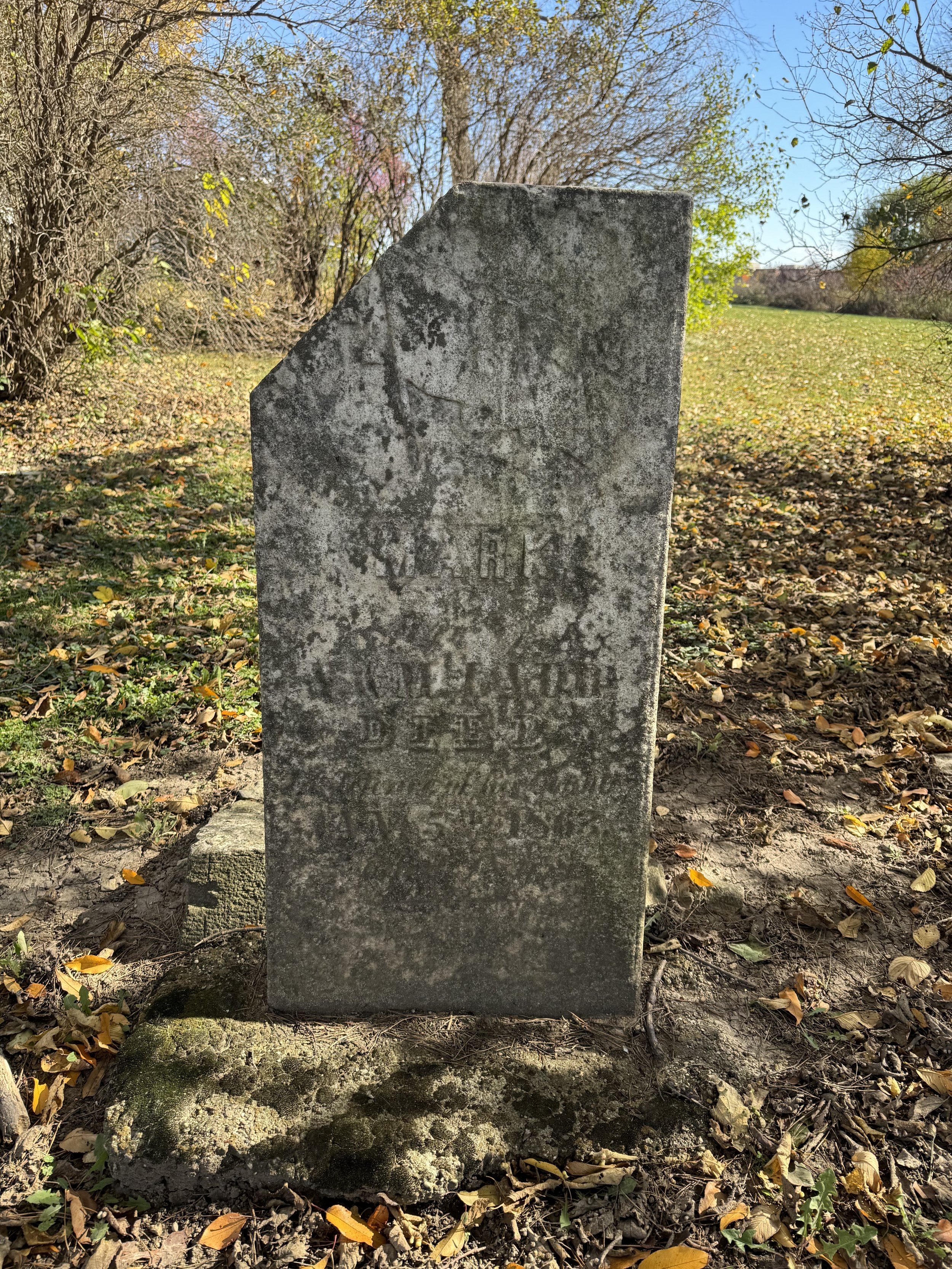Bing Image Creator
Just off Crane Road in St. Charles, there’s a small cemetery that’s easy to drive by. One of the earlier cemeteries in St. Charles Township, Prairie Ridge is the last resting place of many of the first pioneers who settled here in the mid-19th century. Left untended for a long time, the cemetery was mostly overgrown in the 1960s when a group of teens visited the cemetery sometime in the winter of 1969.
History doesn’t record what happened next, but somehow, the teens managed to steal the 200-pound tombstone of Civil War veteran Pvt. Mark Ladd. Pvt. Ladd was an 18-year-old farm boy born in Plato, who enlisted in the Army in September 1862 and who died in St. Louis about five months later on January 5, 1863. One account says he ”fell to Confederate cannon.”
Bing Image Creator
After desecrating the young soldier’s grave, the teens decided to take the tombstone with them on a Rt. 66 road trip. In April of 1969, they were caught creating a pile of stones and attempting to place Pvt. Ladd’s tombstone on the top of that pile just outside of Kingman, Arizona, near Interstate 40 by Arizona Highway Patrolman John Helmer.
Patrolman John Helmer after retirement in 1990.
Patrolman Helmer, a veteran himself, took it upon himself to return the tombstone to its rightful place of honor. But where was that? He worked with his local American Legion in Kingman, and Post Commander Charles Hartup knew who to notify. He wrote to Arizona Sen. Barry Goldwater, who passed along the information request to an archivist at the Library of Congress, James Rhoads, who dutifully located Ladd’s Army records. But there was a missing piece of information - his death certificate indicated nothing about the final disposition of his body.
Sen. Barry Goldwater
But they did know that he was from Plato, Illinois. Requests for information from the American Legion’s headquarters in Illinois and the Illinois Veterans’ Commission revealed Pvt. Ladd’s final resting place - Prairie City Cemetery in St. Charles, Illinois. The Kingman American Legion paid for the transport of the slab back to Illinois, and on Sunday, October 20, 1969, almost exactly one hundred and four years after it was first erected, the tombstone was reinstalled at the head of Pvt. Mark Ladd’s grave.
From left: Commander Charles Hartup, Kingman, AZ, American Legion Post; Chakres McCarthy, Legion member and president of the Kingman Chamber of Commerce; and Richard E. Tolf, St. Charles American Legion Post 342.
Today, the cemetery is well-maintained by the Township of St. Charles, like many other cemeteries in the township. But it’s easy to miss as you head down Crane Rd. The next time you go by, maybe remember not only the heroism of Pvt. Ladd, but the kind hearts of strangers and the relentless efforts of public servants to pay appropriate respect to these hallowed heroes and their final resting places.
From his tombstone:






















